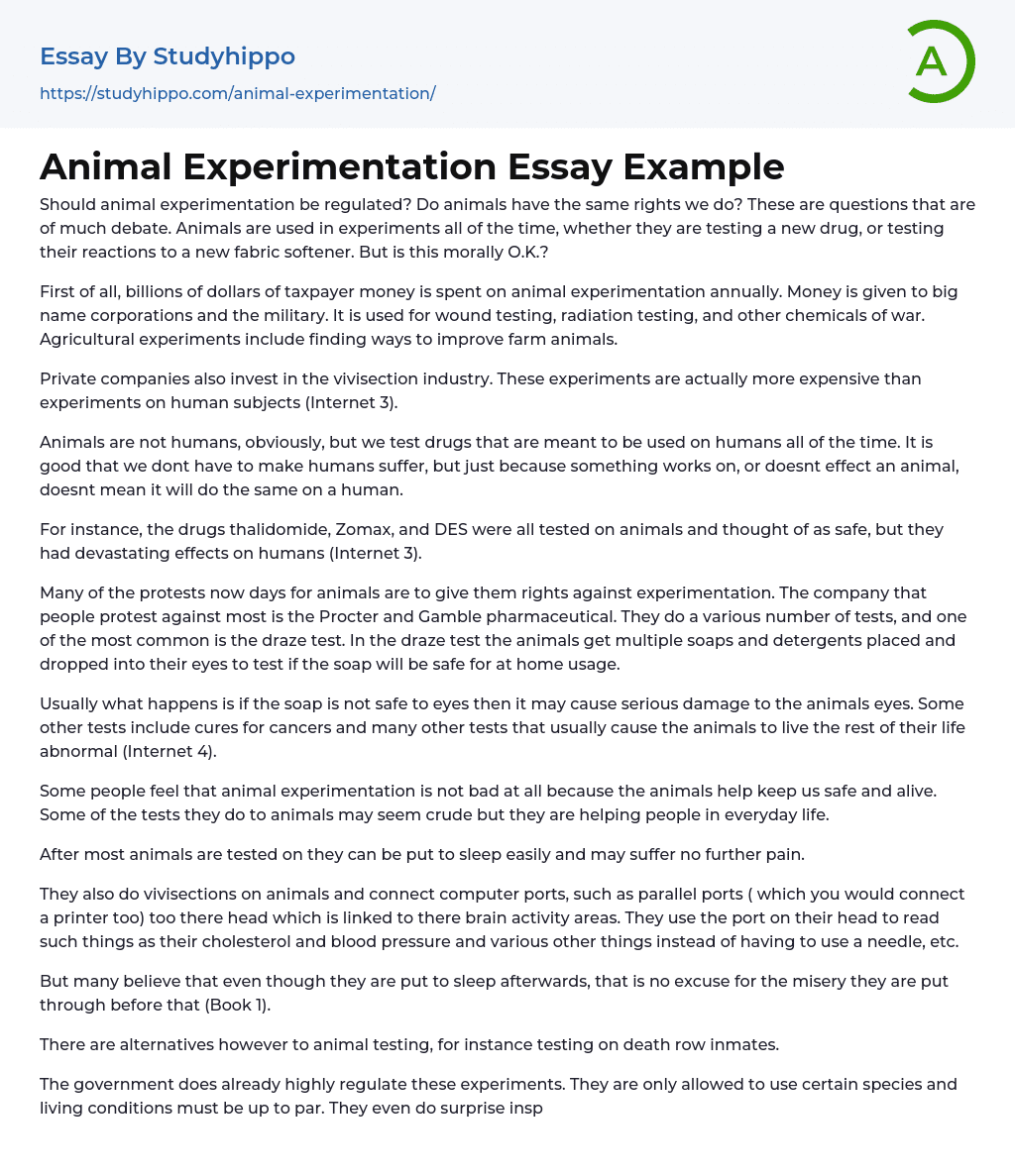There is a heated debate surrounding the regulation of animal experimentation and the rights of animals. Experiments involving animals are common, ranging from testing new drugs to observing their reaction to various fabric softeners. Nonetheless, the ethical consequences of these practices continue to be examined closely.
Every year, a significant amount of taxpayer money is devoted to animal experimentation, benefiting major corporations and the military. These funds are utilized for various purposes such as testing war-related chemicals, radiation, wounds, and conducting agricultural experiments to enhance farm animals.
Even though animals and humans are distinct, drug tests conducted on animals often apply to human use. While it is beneficial for humans to avoid suffering, it is crucial to understand that the effectiveness or safety of a drug on animals does not automatically translate to the
...same result for humans.
Many animal rights protests are currently focused on advocating against experimentation. Procter and Gamble pharmaceutical is the company that receives the most protests. They conduct a range of tests, including the draze test. In this test, animals have multiple soaps and detergents placed and dropped into their eyes to ensure the safety of these products for home use.
Generally, when soap is not eye-safe, it can lead to severe harm to animals' eyes. Additionally, various tests, such as cancer treatments, often result in the animals living with abnormal conditions for the remainder of their lives (Internet 4).
Many believe that animal experimentation is beneficial as it aids in safeguarding and sustaining human life despite certain tests being viewed as harsh.
The individuals conduct animal vivisections and connect computer ports
specifically parallel ports used for printer connection, to their heads. These ports are connected to brain activity areas and serve as a means of gathering information such as cholesterol and blood pressure readings. This eliminates the necessity of using needles.
However, there are many who argue that the suffering experienced before being put to sleep cannot be justified, even if they are ultimately relieved from it later (Book 1).
The experiments are already highly regulated by the government, including limitations on the use of certain species and requirements for adequate living conditions. Surprise inspections are conducted, but numerous illegal operations occur without detection. Disturbing pictures documenting these activities can be found online.
Animals lack the ability to communicate and express their consent or refusal for being used in experiments.
References.
- Fox, Michael W. (1980). Returning to Eden: Animal Rights and Human Responsibility New York: The Viking Press2. Morris, Richard K. ; Fox, Michael W.
- (1978) On the Fifth Day: Animal Rights ; Human Ethics Washington D.C.: Acropolis Books3. PETA online www.peta.com4.
- The Sad Faces of Vivisection in America http://members.tripod.com/~duwonnie/
- Rabbit essays
- Distribution essays
- Large Animals essays
- Mouse essays
- Poultry essays
- Animal Abuse essays
- Cats Vs Dogs essays
- Cattle essays
- Territory essays
- Values of Life essays
- Ethical dilemma essays
- Normative Ethics essays
- Virtue Ethics essays
- Belief essays
- Deontology essays
- Moral essays
- Virtue essays
- Work Ethic essays
- Abortion essays
- Abuse essays
- Animal Rights essays
- Animal Testing essays
- Assault essays
- Bullying essays
- Controversial Issue essays
- Crash essays
- Cyber Bullying essays
- Feminism essays
- Human Rights essays
- Immigration essays
- Inequality essays
- Poverty essays
- Prejudice essays
- Racism essays
- Torture essays
- Violence essays
- Agriculture essays
- Albert einstein essays
- Animals essays
- Archaeology essays
- Bear essays
- Biology essays
- Birds essays
- Butterfly essays
- Cat essays
- Charles Darwin essays
- Chemistry essays
- Dinosaur essays
- Discovery essays
- Dolphin essays




